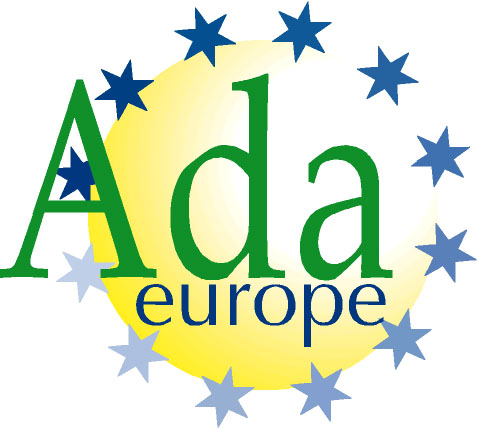
Call for Papers
10th International Conference on Reliable Software Technologies – Ada-Europe 2005
20-24 June 2005, York, UK
http://www.ada-europe.org/conference2005.html

Conference Chair
Alan Burns
University of York, UK
Program Co-Chairs
Tullio Vardanega
University of Padua, Italy
tullio.vardanega@math.unipd.it
Andy Wellings
University of York, UK
Tutorial Chair
Iain Bate
University of York, UK
Exhibition Chair
Rod Chapman
Praxis
Critical Systems
rod.chapman@praxis-cs.co.uk
Publicity Chair
Ian Broster
University of York, UK
Dirk Craeynest
Aubay Belgium & K. U. Leuven, Belgium
Dirk.Craeynest@cs.kuleuven.ac.be
Local Administrator
Sue Helliwell
University of York, UK
sue@cs.york.ac.uk
Ada-Europe
Conference Liaison
Laurent Pautet
ENST Paris, France
In cooperation with
SIGAda
(approval pending)

General Information
The 10th International Conference on Reliable Software Technologies (Ada-Europe 2005) will take place in York, UK. Following the usual style, the conference will span a full week, including a three-day technical program and vendor exhibitions from Tuesday to Thursday, along with parallel workshops and tutorials on Monday and Friday.
Schedule

Topics
In the last decade the conference has established itself as an international forum for providers and practitioners of, and researchers into, reliable software technologies. The conference presentations will illustrate current work in the theory and practice of the design, development and maintenance of long-lived, high-quality software systems for a variety of application domains. The program will allow ample time for keynotes, Q&A sessions, panel discussions and social events. Participants will include practitioners and researchers from industry, academia and government organisations interested in furthering the development of reliable software technologies. To mark the completion of the technical work for the Ada language standard revision process, a special session will be devoted to the presentation and discussion of the prospects of the revised language in the landscape of mainstream language technologies.
For papers, tutorials, and workshop proposals, the topics of interest include, but are not limited to:
Methods and Techniques for Software Development and Maintenance: Requirements Engineering, Object-Oriented Technologies, Formal Methods, Re-engineering and Reverse Engineering, Reuse, Software Management Issues
Software Architectures: Patterns for Software Design and Composition, Frameworks, Architecture-Centered Development, Component and Class Libraries, Component-Based Design
Enabling Technology: CASE Tools, Software Development Environments and Project Browsers, Compilers, Debuggers and Runtime Libraries
Software Quality: Quality Management and Assurance, Risk Analysis, Program Analysis, Verification, Validation, Testing of Software Systems
Critical Systems: Real-Time, Distribution, Fault Tolerance, Information Technology, Safety, Security
Mainstream and Emerging Applications: Multimedia and Communications, Manufacturing, Robotics, Avionics, Space, Health Care, Transportation
Ada Language and Technology: Programming Techniques, Object-Oriented Programming, Concurrent Programming, Bindings and Libraries, Evaluation & Comparative Assessments, Critical Review of Language Enhancements, Novel Support Technology
Call for Industrial Presentations
A separate call is made for presentations of Experience Reports from Industrial Projects and/or Experiments, Case Studies and Comparative Assessments, Management Approaches, Qualitative and Quantitative Metrics, Education and Training Activities with bearing on any of the conference topics. Full papers and/or Extended Abstracts on these topics are also welcome.